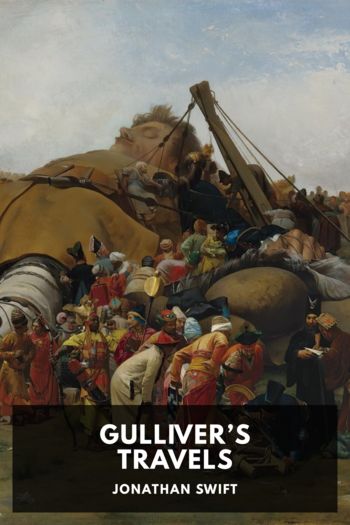The Assassins by Alan Bardos (best novels in english txt) 📗

- Author: Alan Bardos
Book online «The Assassins by Alan Bardos (best novels in english txt) 📗». Author Alan Bardos
Since coming of age, Franz Ferdinand had been subject to the Habsburg Family Law, which decreed that members of the family must marry a person of 'equal birth'. Franz Ferdinand had found the only appropriate princesses to be ugly, underdeveloped ducklings. He’d neither had the time nor the inclination to educate a wife several years too young for him.
It was inevitable that when somebody from his circle found a person they loved there was always some triviality in their family tree to make the marriage impossible, and so invariably, with such limited choices, a man and his wife were always related to each other twenty times over, with the result that half their children were cretins.
His cousin, Archduke Friedrich and his calculating wife Isabella, had had the temerity to think he'd be willing to form this type of union with their daughter, Maria Christina. This misconception developed because Franz Ferdinand was a constant visitor to their palace in Pressburg. When the truth was discovered, it caused a terrible uproar.
Franz Ferdinand's blood boiled at the memory. He'd forgotten his pocket watch after a tennis match in the palace gardens. Isabella had been brought the watch and was incensed to find it contained a miniature of Countess Sophie Chotek, her lady in waiting, and not her daughter. Isabella assembled her household and confronted Sophie with the picture. Shrieking, she denounced Sophie as a schemer who'd deceived her and betrayed her kindness, then she promptly dismissed her. Subsequently, Isabella ran to the Emperor and informed him that his nephew had trifled with her daughter's affections, whilst forming an attachment with her lady-in-waiting.
Sophie came from a noble Czech family - her father had been a great diplomat for the Empire, but in court circles she was a glorified maid. The Archduke had established an understanding with Sophie five years previously and she'd been all that had kept him going through years of bitter illness and convalescence. He'd hoped to keep the matter quiet until the Emperor passed away and then, as head of the family, he could at last, marry whom he pleased.
The Emperor had demanded that he give Sopherl up but Franz Ferdinand refused. Franz Josef had married Empress Elisabeth, his Sissi, for love, and even though she was a lady of equal birth, it had been against his mother's wishes. The Archduke considered that to be the only thing his uncle had ever done for love. Franz Josef had then destroyed his marriage with protocols and unflinching court etiquette.
Considerable pressure was brought to bear on both Franz Ferdinand and Sophie, but in the end, the Emperor had little choice but to accept Sophie as Franz Ferdinand's bride. If he'd expelled Franz Ferdinand from the family his younger brother Otto would have been next in line and his scandalous life made that prospect impossible. Equally, Franz Ferdinand could choose to stick to his original plan and wait until the Emperor died, meaning that Sophie would then be crowned when they were married - something that Franz Josef could not allow. The only solution was a Morganatic marriage, with the Archduke renouncing his wife's and descendants' claims to the throne, which he did on the 28th June, 1900.
They were married three days later. He'd worn full dress uniform for the simple ceremony, which no male member of his family attended, though they had witnessed his Oath of Renunciation.
The controversy eventually died down but malicious gossip continued, inspired by Isabella's vilification of Sophie as an ambitious schemer who'd bagged the most eligible bachelor in the Monarchy. At court, protocol dictated that Sophie's birth ranked her lower than the youngest Archduchess. She couldn't accompany Franz Ferdinand on any official task within the Empire, be that sitting at the top table with him at state banquets, escorting him to official balls or even driving in court carriages together.
These ceremonial rules and protocols of court were zealously enforced by the court underlings, led by the High Court Chamberlain, Prince Montenuovo, whose own father had been made legitimate by a Morganatic union. Nonetheless, Montenuovo did all he could to make things impossible for Sophie. Franz Ferdinand hated him with a vengeance.
It was as a result of these medieval rituals, inherited from the Spanish Habsburg Court, that they'd arrived at the palace separately. He was in a 'golden' court carriage and she in an ordinary one, reserved for ladies in waiting. The absurdity was breathtaking and it infuriated Franz Ferdinand to see her treated in such a way.
Sophie bore it all stoically and in spite of the indignities they'd been very happy for the fourteen years of their marriage and had three healthy children. She was currently more concerned about an item on his summer programme.
'Franzi, are you still expected to observe the manoeuvres in Bosnia?'
'Nothing was discussed today, but now my uncle's health is improving...' Franz Ferdinand shrugged.
'It's your health I'm concerned about. The summer heat in Bosnia is unbearable.'
'My wife, my doctor, my advisor - my entire happiness. It's my duty to go.' The Emperor had recently made Franz Ferdinand Inspector General of the Army, partly to keep him out of the way and partly to help prepare him to become Emperor, but the post offered him very little opportunity to do anything. What chance he had, he felt honour bound to take.
'Is it safe? The people didn't exactly give you a rousing welcome when you visited Herzegovina and Dubrovnik.'
Franz Ferdinand turned away; he didn’t want Sophie to see the anger in his eyes. The memory of all of the faces, staring at him in silence eight years previously, still galled him.
'And there have been threats.'
'Threats are an occupational hazard, but it might be as well not to tempt fate.' Franz Ferdinand had already been subject to a number of assassination plots. He'd postponed his last visit to Bosnia in 1910, at the recommendation of his advisors, who





Comments (0)